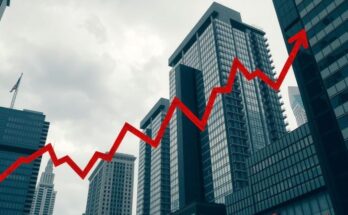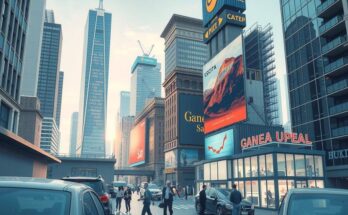Inflation has emerged as a dominant issue as the U.S. election approaches, with about 40 percent of voters prioritizing it and related economic concerns. Despite government reassurances, rising prices persist, causing increased burdens on families. Candidates are proposing varied solutions, yet experts express skepticism regarding their effectiveness and potential impact on the growing national debt and wealth disparities.
As the 2024 U.S. presidential election approaches, inflation has taken center stage in voters’ minds, with a recent poll revealing that almost 40 percent identify economic issues, including prices and jobs, as top concerns. Despite government claims of controlling inflation, many Americans are feeling the financial strain from soaring prices. Families have reported spending around $2,500 more annually on groceries compared to the previous year, with housing costs also rising significantly while real wages drop. To advance their campaigns, both Democratic and Republican candidates are promising solutions to inflation. Democratic candidate Kamala Harris suggests a federal ban on what she terms “corporate price-gouging” to address rising food prices, but experts argue that a lack of supply underlies many price increases rather than corporate greed. Harvard economist Kenneth Rogoff emphasized that corporate pricing strategies aren’t the main driver of inflation, suggesting that intervening could disrupt economic balance. Meanwhile, Donald Trump has proposed increasing fossil fuel extraction to alleviate energy costs and consequently inflation. Critics believe this approach lacks substance since the president has limited direct control over production levels. Additionally, other challenges, like a hesitant industry and a complex global economic landscape, complicate potential outcomes. Trump’s trade policies include imposing substantial tariffs on imported goods, including a staggering 60 percent on items from China. Though this might seem protective, experts warn it could backfire, raising prices on everyday items for American consumers by 10 percent or more. Furthermore, Trump’s aggressive immigration policies could lead to labor shortages, aggravating inflation as reduced workforce capacities affect production. Both candidates have other strategies in their arsenal. Harris proposes increasing housing supply and offering subsidies to first-time homebuyers, while Trump advocates for radical tax reforms that could see billions in personal income tax reductions. Yet neither candidate has concretely explained their funding plans, raising concerns about their feasibility in addressing unsustainable federal debt levels. Promises of quick solutions to inflation amidst rising inequality remain unfulfilled, exacerbating the economic divide. The disparity in wealth has widened over recent decades, with billionaires accumulating substantial fortunes while many low-income Americans struggle due to stagnant wages. Without a substantial reevaluation of fiscal obligations, the rising tide of economic disparity may only worsen, failing to resolve the inflation crisis plaguing many households.
The backdrop of this analysis is the critical state of the U.S. economy as the 2024 presidential election looms large. Rising inflation hinders many American families, causing a palpable disconnect between government proclamations of economic stability and the everyday financial struggles faced by individuals. As candidates from both major parties vie for voters’ support, their proposals to counteract inflation and improve economic conditions are under scrutiny, inviting skepticism from experts concerning their efficacy and sustainability, especially in light of a growing national debt and wealth inequality.
In conclusion, as the 2024 election nears, inflation remains a primary concern for many Americans, overshadowing political promises made by candidates. The strategies proposed by both Harris and Trump have ignited debates about their feasibility in a financially unstable environment. Stagnant wages, widening wealth inequality, and unanswered questions about funding further complicate the situation, demonstrating that political rhetoric may not translate into practical solutions for those grappling with rising living costs.
Original Source: english.news.cn



